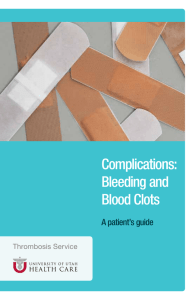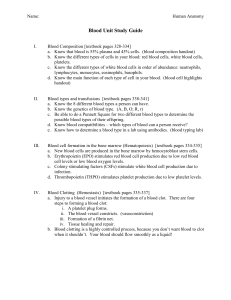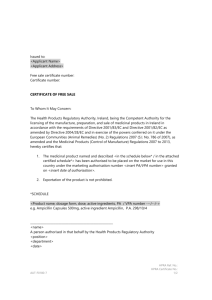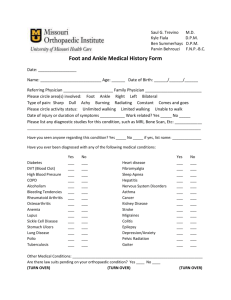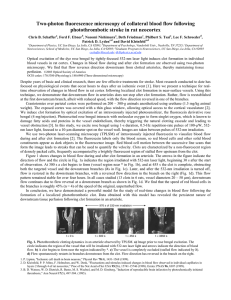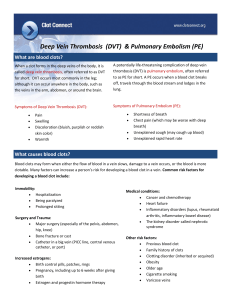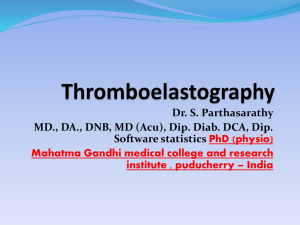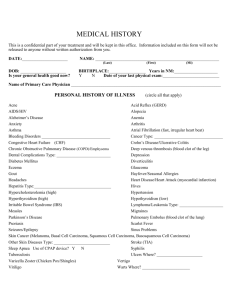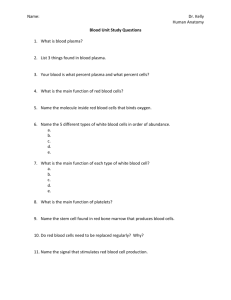CHCs Art 31 -1356 - Patient sheet Q&A
advertisement
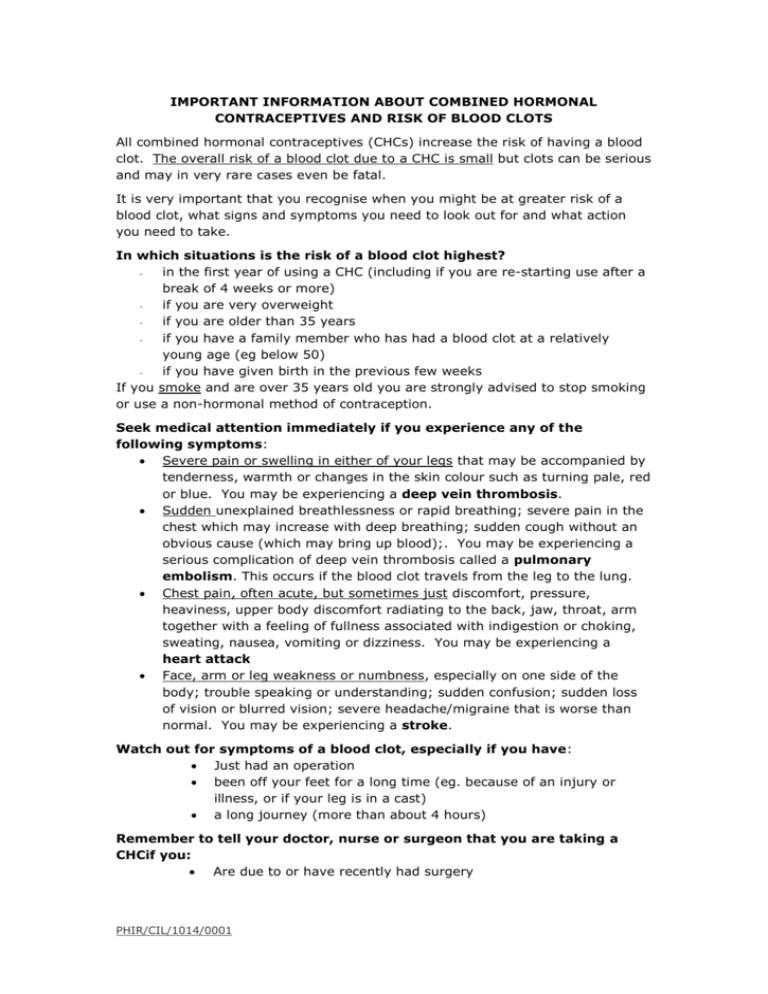
IMPORTANT INFORMATION ABOUT COMBINED HORMONAL CONTRACEPTIVES AND RISK OF BLOOD CLOTS All combined hormonal contraceptives (CHCs) increase the risk of having a blood clot. The overall risk of a blood clot due to a CHC is small but clots can be serious and may in very rare cases even be fatal. It is very important that you recognise when you might be at greater risk of a blood clot, what signs and symptoms you need to look out for and what action you need to take. In which situations is the risk of a blood clot highest? in the first year of using a CHC (including if you are re-starting use after a break of 4 weeks or more) if you are very overweight if you are older than 35 years if you have a family member who has had a blood clot at a relatively young age (eg below 50) if you have given birth in the previous few weeks If you smoke and are over 35 years old you are strongly advised to stop smoking or use a non-hormonal method of contraception. Seek medical attention immediately if you experience any of the following symptoms: Severe pain or swelling in either of your legs that may be accompanied by tenderness, warmth or changes in the skin colour such as turning pale, red or blue. You may be experiencing a deep vein thrombosis. Sudden unexplained breathlessness or rapid breathing; severe pain in the chest which may increase with deep breathing; sudden cough without an obvious cause (which may bring up blood);. You may be experiencing a serious complication of deep vein thrombosis called a pulmonary embolism. This occurs if the blood clot travels from the leg to the lung. Chest pain, often acute, but sometimes just discomfort, pressure, heaviness, upper body discomfort radiating to the back, jaw, throat, arm together with a feeling of fullness associated with indigestion or choking, sweating, nausea, vomiting or dizziness. You may be experiencing a heart attack Face, arm or leg weakness or numbness, especially on one side of the body; trouble speaking or understanding; sudden confusion; sudden loss of vision or blurred vision; severe headache/migraine that is worse than normal. You may be experiencing a stroke. Watch out for symptoms of a blood clot, especially if you have: Just had an operation been off your feet for a long time (eg. because of an injury or illness, or if your leg is in a cast) a long journey (more than about 4 hours) Remember to tell your doctor, nurse or surgeon that you are taking a CHCif you: Are due to or have recently had surgery PHIR/CIL/1014/0001 Are in any situation when a healthcare professional asks you if you are taking any medications For further information please read the accompanying Patient Information Leaflet or go to www.ema.europa.eu or www.hpra.ie. If you suspect you have an undesirable effect associated with the use of your CHC, you can report it to a Healthcare professional. You can also report side effects directly via HPRA Pharmacovigilance, Earlsfort Terrace, Dublin 2; Tel: +353 1 6764971; Fax: +353 1 6762517; www.hpra.ie; E-mail: medsafety@hpra.ie. PHIR/CIL/1014/0001
